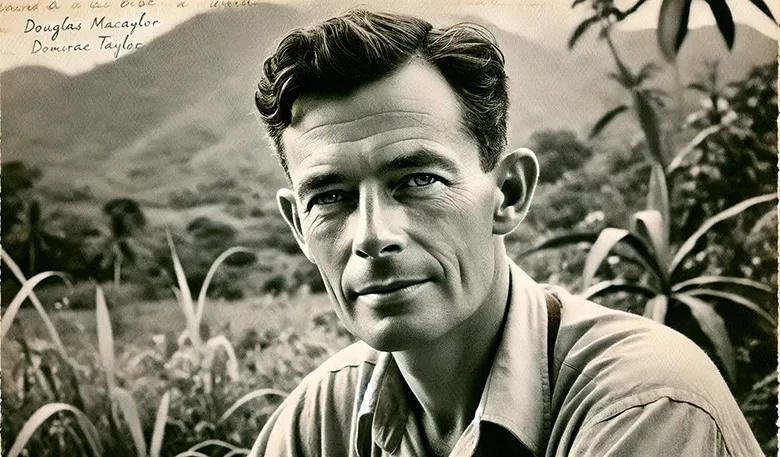Douglas Taylor

Douglas Macrae Taylor (1901–1980) was a prominent British anthropologist and linguist who significantly contributed to the study of the Indigenous people of Dominica. Born in Yorkshire, England, Taylor initially pursued a career in Modern Languages, earning degrees from Cambridge University and a diploma from the École des Arts et Sciences Politiques in Paris. His life took a pivotal turn in 1931 during a vacation in Martinique when he first visited the Carib Reserve (now the Kalinago Territory) in Dominica. This visit sparked a lifelong fascination with the Kalinago culture and the Creole languages of the Caribbean.
Douglas Taylor, Life and Work in Dominica
In 1938, Taylor made Dominica his home, residing on the remote Magua Estate. This location allowed him to study the Kalinago language and culture. The Kalinago Territory, located on Dominica’s northeast coast, became the epicentre of his research. Taylor meticulously documented the Kalinago’s material culture, kinship structures, linguistic practices, and the Carib War, contributing significantly to preserving and understanding their heritage.
Taylor’s Contributions to Kalinago Studies
Taylor’s work is best exemplified in his comprehensive studies on the Kalinago people, particularly in his publication “The Caribs of Dominica” (1938). His research provided an in-depth look into the Kalinagos’ daily lives, social organization, and material culture, making it one of the most authoritative sources. Taylor’s insights into Dominican basketry and other cultural practices highlighted the unique aspects of Kalinago life that were previously underrepresented in academic literature.
Taylor’s Legacy and Recognition
Douglas Taylor’s contributions to anthropology and linguistics, particularly in the context of Dominica, have had a lasting impact on the study of indigenous cultures in the Caribbean. Despite his significant achievements, Taylor preferred a life of privacy and simplicity, which may explain why his contributions were not widely recognized in Dominica during his lifetime. Nonetheless, his work remains a cornerstone for scholars and researchers interested in the Carib culture and Creole studies.
Taylor passed away in 1980 in Manchester, England, having dedicated much of his life to the people and culture of Dominica. His legacy continues to influence the fields of anthropology and linguistics, particularly in the study of Caribbean languages and cultures.




